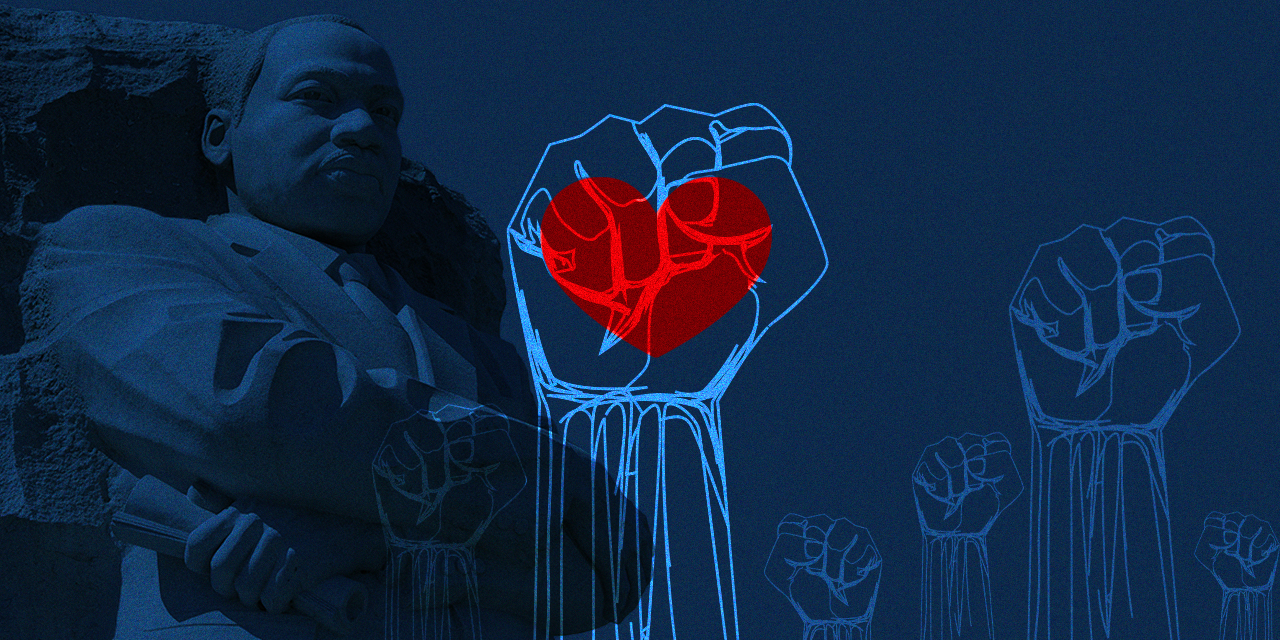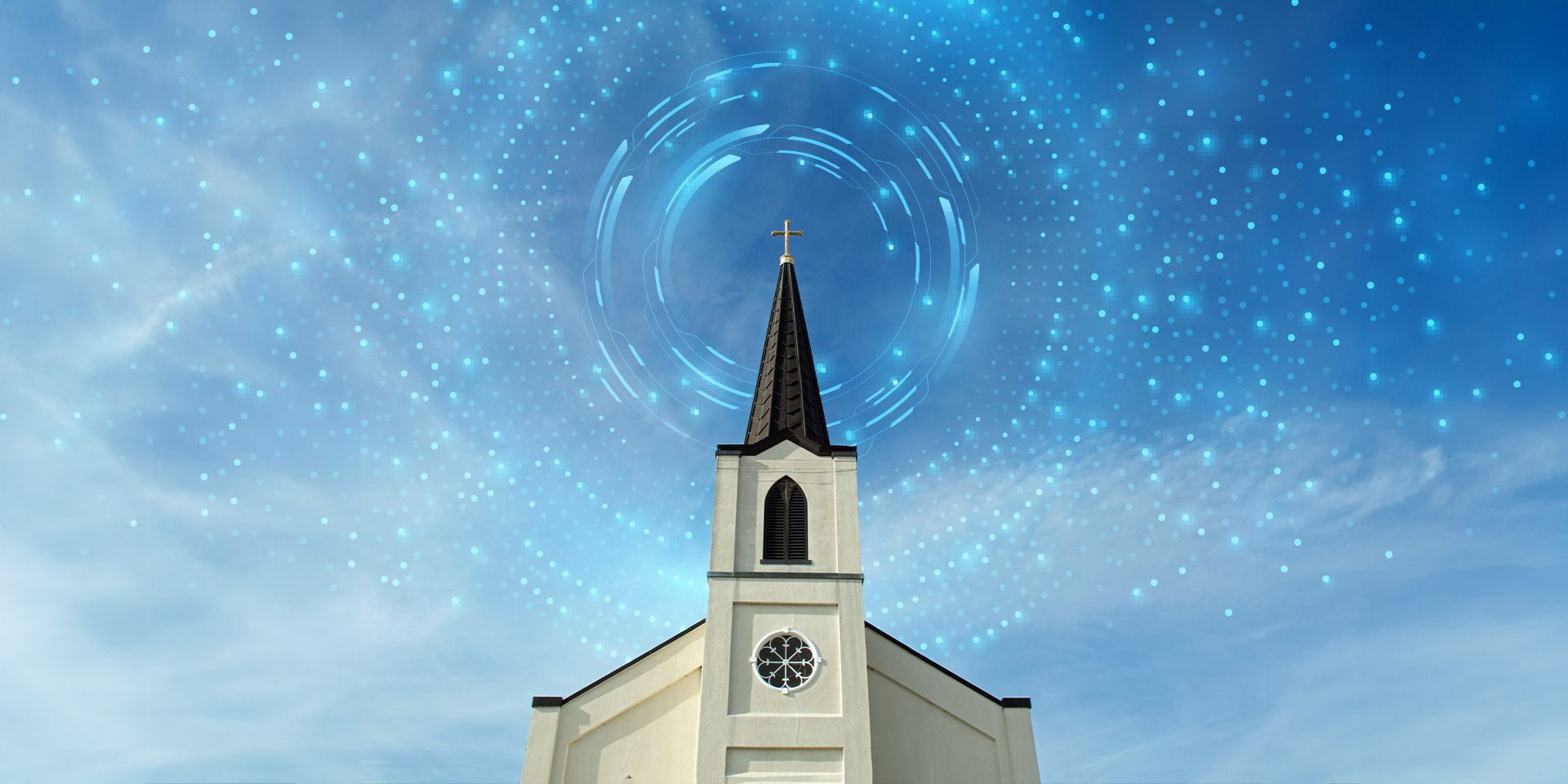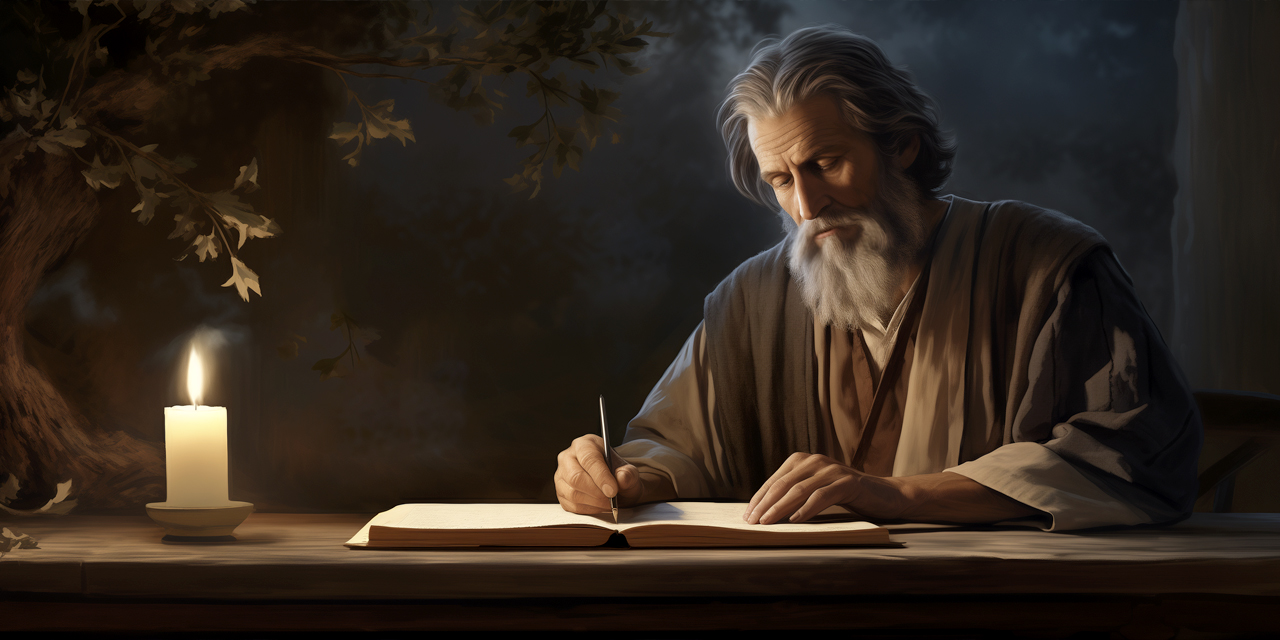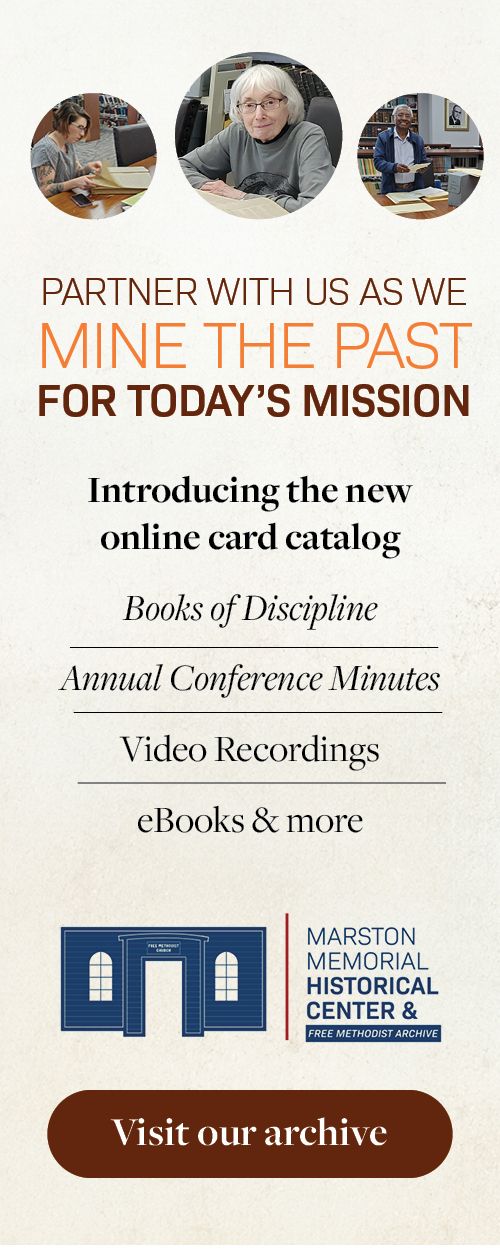By Fraser Venter
“And I say to you, I have also decided to stick with love, for I know that love is ultimately the only answer to mankind’s problems. (Yes) And I’m going to talk about it everywhere I go.” – Martin Luther King Jr. (excerpted from his Aug. 16, 1967, speech in Atlanta, Georgia, “Where Do We Go From Here?”)
I will never forget sitting in a small classroom at Azusa Pacific University, listening to the now-graduated-to-heaven Dr. John Hartley, world-renowned Old Testament scholar, as he unpacked the Hebrew word for love, hesed (חֶסֶד). Dr. Hartley stated, “The Hebrew word hesed, three letters that when combined — if defined in less than 13 pages — would not be sufficient to communicate the richness of its meaning.” I don’t have to tell you I leaned in as he began to unpack this truth.
Don’t worry; you are not about to read a 13-page article, but here are some important highlights.
Hesed is the word describing love — not any ordinary love but rather the loyal, steadfast, or faithful love based on a promise, agreement, or covenantal love of God for His people. Hesed is a word that many other biblical words relate to, such as mercy, compassion, love, grace, and faithfulness.
Yet still, as Dr. Hartley shared, even this definition would be too limiting. Hesed should not be confused as a word to describe our favorite food, pastime, or sports team — or merely an emotion or feeling squished onto an overly priced Hallmark card. Hesed also involves action on behalf of someone who is in need. It is a word that inspires us right from God’s revealed character and nature to an action of love and loyalty that inspires merciful and compassionate behavior toward another person. Hesed is a love received and a love given.
_
“It is not just a temporary action but a continual contending until it is seen, felt, heard, and experienced.”
_
I think Jesus had hesed on His mind when He used the more familiar word agape in the New Testament as its equivalent. Agape too is a word that deserves pages of definition devoted to it. Yet, for the sake of space, we all might agree that it is the word describing God’s highest, noble, sacrificial, and selfless love toward us and His hope of our returned love to God and demonstrated to others.
I love how one author describes agape: “The kind of love that is always contending for the highest possible good in every situation and relentlessly contends until it’s a present-tense reality.” “Agape love is also the kind of love God says we are to have for all people, whether they are friends or enemies.” I love this definition as it puts love into action. It is not just a temporary action but a continual contending until it is seen, felt, heard, and experienced. It too is an uncomfortable word as it stretches us into unknown margins and spaces where those we don’t agree with give us an opportunity to grow in grace and embrace while experiencing fear or anger.
And with these definitions fresh in our mind, may I ask the question, “How does your love measure up to these standards?” “Do you love in a way that God’s highest good is seen and contending with the same measure toward friend or foe?”
The Mission of God
That’s what Love-Driven Justice must ask and where we must go from here.
When asked about the principle of Love-Driven Justice, I often say to focus on the word Love first and let it drive you to the missio dei of His Justice. Notice I didn’t say mission but missio dei (the Mission of God). Mission is our approach to ministry where we often seek God’s approval of our plans rather than seeking God’s missio that He has already approved of in Scripture. And love has been His top priority of His missio throughout.
_
“I know the tension of the now, not yet but … we are not called to be a waiting-around-until-the-end type of people.”
_
Again, this is not a conditional love based on my circumstances, ideology, or demographics but an unconditional pursuit of bringing heaven to earth until it’s a present-tense reality. And, yes, I know the tension of the now, not yet but — especially for those of us who are Free Methodists with a rich Wesleyan tradition — we are not called to be a waiting-around-until-the-end type of people. We are an engaged, spiritually alive people in our churches, schools, and communities, seeking opportunities for Christ’s love to be seen and felt. And in so doing, we point to the author of love who sustains and motivates us in our actions (1 John 4:19).
Are We Done … ?
As I look at the life and legacy of Martin Luther King Jr., I can, without hesitation, see in both his words and deeds the trajectory of a hesed/agape type of love formed in him and expressed through him. It is one of the reasons we get the opportunity to celebrate all that a life submitted to Christ and calling can accomplish. Yet, if he were still here, I believe he would ask, “Are we done loving yet?”
The quote from MLK about deciding to stick to love is an excerpt from his speech titled, “Where Do We Go From Here?” It was a speech given by the Rev. Dr. King as he analyzed the state of American race relations, the movement after a decade of U.S. civil rights struggle, and the Voting Rights Act of 1965. He, along with many others, wondered out loud if the Civil Rights Movement and the struggle of the marginalized, particularly Black Americans, would be able to progress in areas of employment, education, housing, medical accessibility, and higher wages.
In the speech, Rev. Dr. King goes on to states the kind of love necessary to move forward:
“I’m not talking about emotional bosh when I talk about love; I’m talking about a strong, demanding love. (Yes) For I have seen too much hate. (Yes) I’ve seen too much hate on the faces of sheriffs in the South. (Yeah) I’ve seen hate on the faces of too many Klansmen and too many White Citizens Councilors in the South to want to hate, myself, because every time I see it, I know that it does something to their faces and their personalities, and I say to myself that hate is too great a burden to bear. (Yes, that’s right) I have decided to love. If you are seeking the highest good, I think you can find it through love. And the beautiful thing is that we aren’t moving wrong when we do it, because John was right, God is love. (Yes) He who hates does not know God, but he who loves has the key that unlocks the door to the meaning of ultimate reality.”
I ask us now, “How does our love measure up to the highest good?” Will we be known for our love that actually releases others’ burdens or will be seen as a people who, in fear, forget our highest calling — to love and not hate?
_
“This love is a powerful love.”
_
And Rev. Dr. King goes on to state a clear warning to us all about what love is not:
“What I’m trying to get you to see this morning is that a man may be self-centered in his self-denial and self-righteous in his self-sacrifice. His generosity may feed his ego, and his piety may feed his pride. So without love, benevolence becomes egotism, and martyrdom becomes spiritual pride.”
Therefore, our love is not about accommodation or a way to point to our own accomplishments, but our love wholeheartedly sees the beauty of God in all of His creation and is willing to sacrifice until we see flourishing in our churches, communities, and structures. That’s what Love-Driven Justice is pursuing.
And this love is a powerful love. As the Apostle Paul proclaims in his prayers for the Ephesus church, a powerful love Christ has put in us to know Him and make Him known. And with this powerful love, MLK reminds us that “power without love is reckless and abusive, and that love without power is sentimental and anemic. … Power at its best is love. (Yes) implementing the demands of justice, and justice at its best is love correcting everything that stands against love. And this is what we must see as we move on.”
Maybe, that’s worth repeating – justice at its best is love correcting everything that stands against love, and this is what we must see as we move!”
So now I ask myself and us, “Where does God’s love take us from here?” Where does the hesed/agape love that calls us not just to receive His love and return His love, but to share His love, take us? Where do we go from here?
I believe we start asking ourselves questions like, “Who is my neighbor that needs to be loved?” We ask the gospel-centered justice question, “Who are the marginalized, broken, oppressed, and voiceless that are in need of His love through me?”
And then most boldly, “Why have the systems produced these injustices?” Beloved, we believe that the inauguration of the kingdom of God came when Jesus arrived, and the fullness of the gospel, evangel — the good news and all that it means — is a kingdom mandate that not only sees the sinner saved but sees a people filled by the Spirit working toward human and creation flourishing until He returns. We would be a people, as MLK reminds us in his sermon on the Good Samaritan, who will not only see the need and meet the need but ask why Jericho (systems) is producing the need.
_
“Where will love take us now?”
_
Where Love Takes Us
So, as you celebrate the legacy of Rev. Dr. King, don’t shave off the edges of his orthodoxy or orthopraxy for a sound bite to accommodate the moment, but deeply ask yourself, “Where will love take us now?” Find ways this year to continually move the missio dei forward into our homes, churches, and communities.
And as MLK suggests, decide to stick with love and talk about it everywhere you go.
From this great speech (sermon), I close with the prayer of Rev. Dr. King:
We must walk on in the days ahead with an audacious faith in the future. (Well) And as we continue our charted course, we may gain consolation from the words so nobly left by that great Black bard, who was also a great freedom fighter of yesterday, James Weldon Johnson (Yes):
Stony the road we trod (Yes),
Bitter the chastening rod
Felt in the days
When hope unborn had died. (Yes)
Yet with a steady beat,
Have not our weary feet
Come to the place
For which our fathers sighed?
We have come over a way
That with tears has been watered. (Well)
We have come treading our paths
Through the blood of the slaughtered.
Out from the gloomy past,
Till now we stand at last (Yes)
Where the bright gleam
Of our bright star is cast.
Let this affirmation be our ringing cry. It will give us the courage to face the uncertainties of the future. It will give our tired feet new strength as we continue our forward stride toward the city of freedom. (Yes) When our days become dreary with low-hovering clouds of despair (Well), and when our nights become darker than a thousand midnights (Well), let us remember (Yes) that there is a creative force in this universe working to pull down the gigantic mountains of evil (Well), a power that is able to make a way out of no way (Yes) and transform dark yesterdays into bright tomorrows. (Speak) Let us realize that the arc of the moral universe is long, but it bends toward justice.
Amen, let it be so, dear Lord. Let it be so.
+
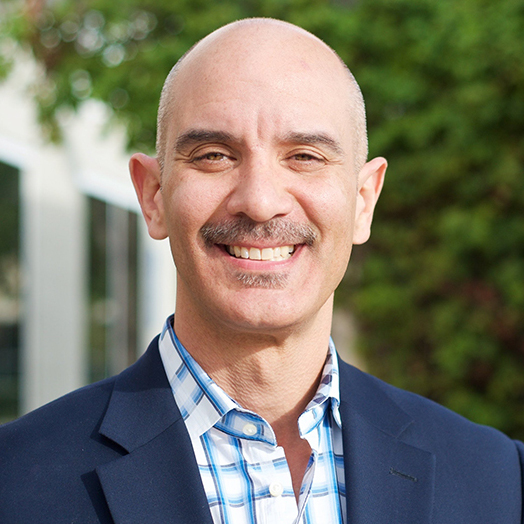
Fraser Venter, D.Min., is the strategic catalyst for love-driven justice on the Free Methodist Church USA Executive Leadership Team. He previously served as the lead pastor of Cucamonga Christian Fellowship in Rancho Cucamonga, California, and as a superintendent of the Free Methodist Church in Southern California. He earned his Master of Divinity and Doctor of Ministry degrees at Azusa Pacific University, and he is currently enrolled in the Master of Arts in Justice and Advocacy (MJA) program at Fuller Theological Seminary.
Great Writing + Discipleship Materials
RELATED ARTICLES

